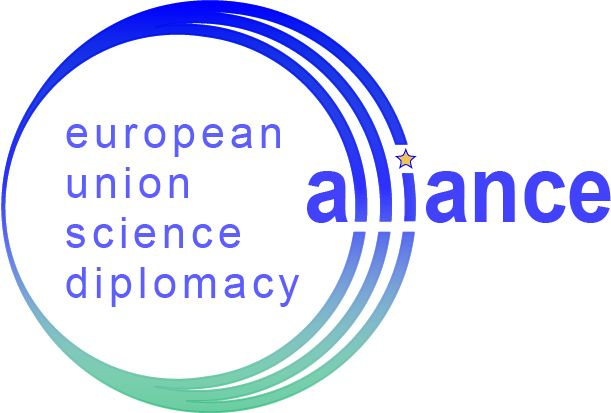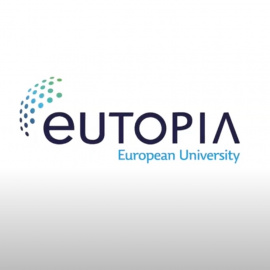InsSciDE’s third open conference was hosted 22-24 March 2022 by project partners NOVA University in Lisbon.
The three days were respectively composed of presentations of research on the international action of Academies of Sciences through history, panel discussions on pressing topics in science diplomacy, and an interactive workshop built on InsSciDE’s case studies of science diplomacy.
Organizer Prof. Maria Paula Diogo reports on the sessions below. Recordings of the event will be available on InsSciDE’s YouTube channel!
The InsSciDE Open Conference Lisbon was designed under the general title European Science Diplomacy, Diversity and the Global South. Its aim was double folded: (i) to continue the debate on European Science Diplomacy, its collaborative endeavors as well as the tensions among countries, and to discuss the kaleidoscopic formats of the concept of technoscientific diplomacy, both time and geography-wise, as well as of the actors involved in its practices; (ii) to explore new avenues of collaboration with non-European researchers and practitioners, particularly those from the so-called Global South, by discussing the role of technoscientific diplomacy in shaping the very concepts of Global North and Global South, colonialism, neo-colonialism and post-colonialism, and the Anthropocene.
Having also in mind that InsSciDE has its own specific agenda and outputs that have to be addressed and discussed in its major meetings, the conference was organized along four days, each one with specific goals. The two first days were hybrid events (only possible due to the tireless and flawless support of the conference’s secretariat, Daniella Palmberg and Hugo Soares, assisted by Ana Martins and André Pereira) and the two last ones were face-to-face sessions.
Day 1 was dedicated to scientific and technical academies as diplomatic actors. It was hosted at the Lisbon Academy of Sciences under the title International Action of Academies: Between Cooperation, Networking and Science Diplomacy (18th-21st centuries) and in the context of InsSciDE’s WP3 (Science Diplomats). Following the opening addresses — by the President of the Lisbon Academy of Sciences, José Luís Cardoso, Pascal Griset on behalf of InsSciDE and Maria Paula Diogo as WP leader — sixteen communications were presented. Most of the speakers were selected from an open call or invited based on InsSciDE’s previous collaboration with European academies.

Although the majority of the papers, as expected, were centered in European academies, the workshop fostered a vivid debate on the importance of establishing a more dynamic platform to foster collaborations among European and non-European scientific and technical academies, as well as encouraging a more balanced gender representation in the academies. In this context, representatives of the several academies and academies’ alliances were able to go further and establish exploratory contacts to be pursued in the near future.
To close the session, Ana Simões and Leonard Laborie, both WP3 InsSciDErs, presented a summary of the topics discussed during the day.
Day 2 took place at NOVA University of Lisbon. The Open Conference was structured around 4 topics that aimed at addressing key issues concerning different, sometime conflictual, perspectives on how a new vision and practice of science diplomacy may be critical to bridge the Global North and the Global South interests and contribute to finding common, albeit diverse, solutions. The four topics chosen were: (i) Open Science; (ii) The Anthropocene; (ii) Technoscience and Innovation Diplomacy; (iv) New Actors and a New Definition of Science Diplomacy.
The conference opened with institutional addresses by Pascal Griset, InsSciDE Coordinator; Virgílio Machado, Dean of the NOVA School of Science and Technology; Isabel Rocha, representative of the Rector of the NOVA University of Lisbon; Ana Rodrigues, Coordinator of the Interuniversity Center for the History of Science and Technology (CIUHCT); and Maria Paula Diogo, Lead organizer of the conference. (Due the Ministers’ Council announcing the new government of Portugal on the day, an anticipated opening address by the Minister of Science, Technology and Higher Education was canceled).
The first session, on Open Science, was organized with help from UNESCO. The discussion stressed the relevance of open science in international policies to mitigate the deep global asymmetries of access to information and knowledge. Attention was drawn to practical aspects supporting open science policies, namely the need for infrastructures that are sine qua non conditions to truly open access science, the diversity of specific situations within Europe and outside Europe, the difficult relationship with publishers and the role of paid journals to support scientific societies.
The second session, on the Anthropocene, was organized with the CIUHCT group dedicated to this topic. The speakers agreed on the importance of analyzing the Anthropocene not as an abstract concept or as something that escapes human control, but as the outcome of specific policies driven by capitalist and globalization interests. During the debate, the participants urged opening up the concept of Anthropocene by ‘historicizing it’, i.e. by including historical processes in Anthropocene analysis, for instance European expansion to overseas territories, industrialization, colonialism, imperialism, and globalization, as well as stakeholders’ (governments, private stakeholders) roles. Power asymmetries between centers and peripheries (including different countries and within empires) were also discussed as critical to understand present day’s world imbalances in accessing wealth and resources.

The third session, on Technoscience and Innovation Diplomacy, approached the specificities of innovation diplomacy as a territory shared between knowledge, economy and politics, thus involving a large spectrum of actors, such as governments, private entrepreneurs, research groups (connected with academic or business), and academies. The panel drew attention to the need to clearly establish the terms of possible collaborations in order to avoid unbalanced situations that could border on sovereignty interference or even neocolonialism. The discussion on technoscientific and innovation diplomacy in the context of the encounters between European Jesuits and the Mughal emperor (16th century), showed the relevance of a longue-durée perspective in unveiling different and changeable dynamics of circulation of knowledge.
Finally, the fourth session, on New Actors and a New Definition of Science Diplomacy brought together a large set of representatives of non-canonic actors in the realm of science diplomacy, including NGOs, citizen science programs, informal transnational networks of academics/ies, young-career national and international networks, and citizens lobbying groups. The debate highlighted the importance of informal channels of science diplomacy in today’s societies not as a substitute for formal actors, mainly diplomats, but as complimentary instances.
Two free standing participations ended the session, one from Brazil who presented the initiative of InnSciD – Innovation and Science Diplomacy School (São Paulo) – and one from APECS – Association of Polar Early Career Scientists on Polar Science Diplomacy – who made a statement on the war in Ukraine.
Ambassador Umberto Vattani of Italy concluded with reflections on the day through the lens of diplomacy, stressing that there are additional constraints to practitioners that, many times, are not compatible with the academic debate. However, in his perspective, the future of science diplomacy and its ability to respond to the 21st century challenges, lies in the collaborative efforts of researchers and diplomats.
Pascal Griset and Maria Paula Diogo closed by stating that the dialogue among European countries and between Europe and non-European countries is critical to technoscientific diplomacy and further efforts should be made to continue to explore and consolidate the avenues opened during the conference.
Day 3 was dedicated to InsSciDE Case Studies of Science Diplomacy: Cross-cutting Themes and Practical Applications. Discussion groups engaged with InsSciDE’s case studies and their authors, exploring their role in a pedagogical contexts and debating a set of themes determined to cut across diverse cases of science diplomacy.

Spanning the project work packages on Health, Space, Security, Science Diplomats, the cases dissect power structures and vested interests that drive science diplomacy, question the very notion of a ‘science diplomat’, and probe the alleged capacity of science diplomacy to champion global challenges.
During the conference, lively debates that took place in the sessions continued during coffee-breaks and lunch hours. InsSciDErs also profited from a group dinner at a traditional Lisbon fado restaurant. The very unique character of Lisbon’s traditional song was the perfect illustration for the Conference motto: foster transnational collaboration while respecting diversity, or, using a more popular expression, “think globally, act locally.”
InsSciDE’s next Open Conference is the concluding event of the project!- Join us in Paris 23-24 June 2022, at Sorbonne University and at UNESCO, as we showcase four years of science diplomacy research, training experiences and recommendations for the pathway forward.




